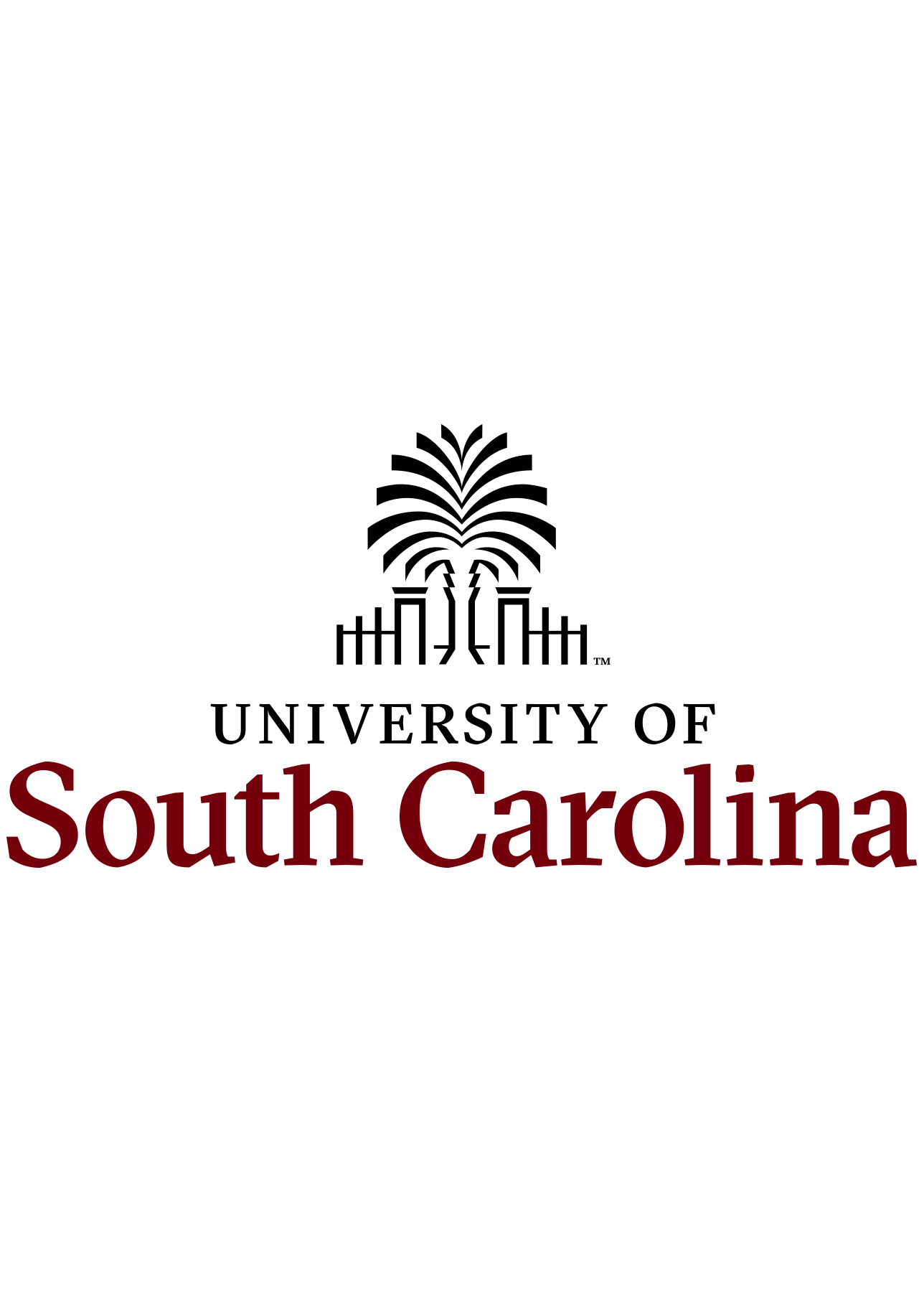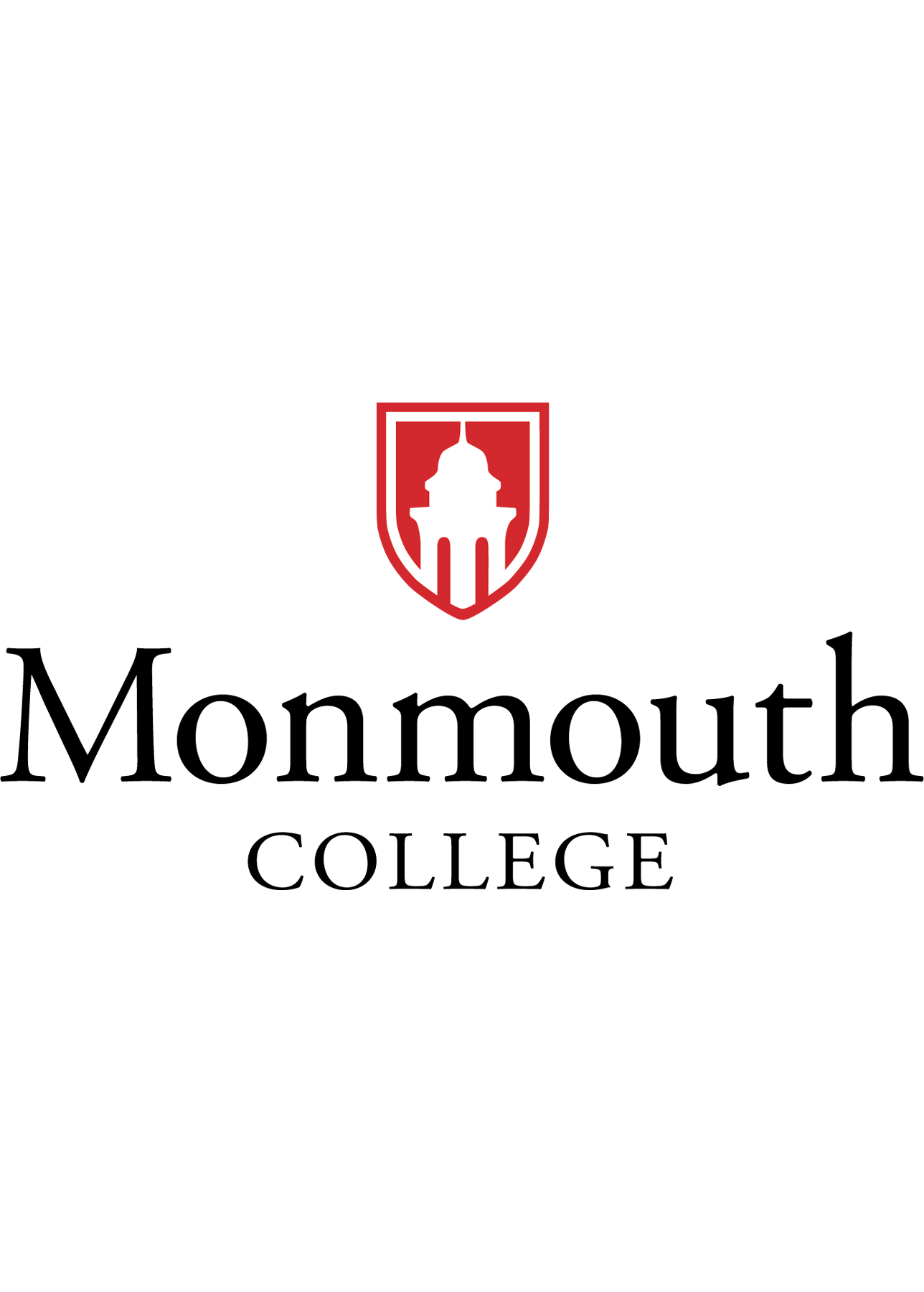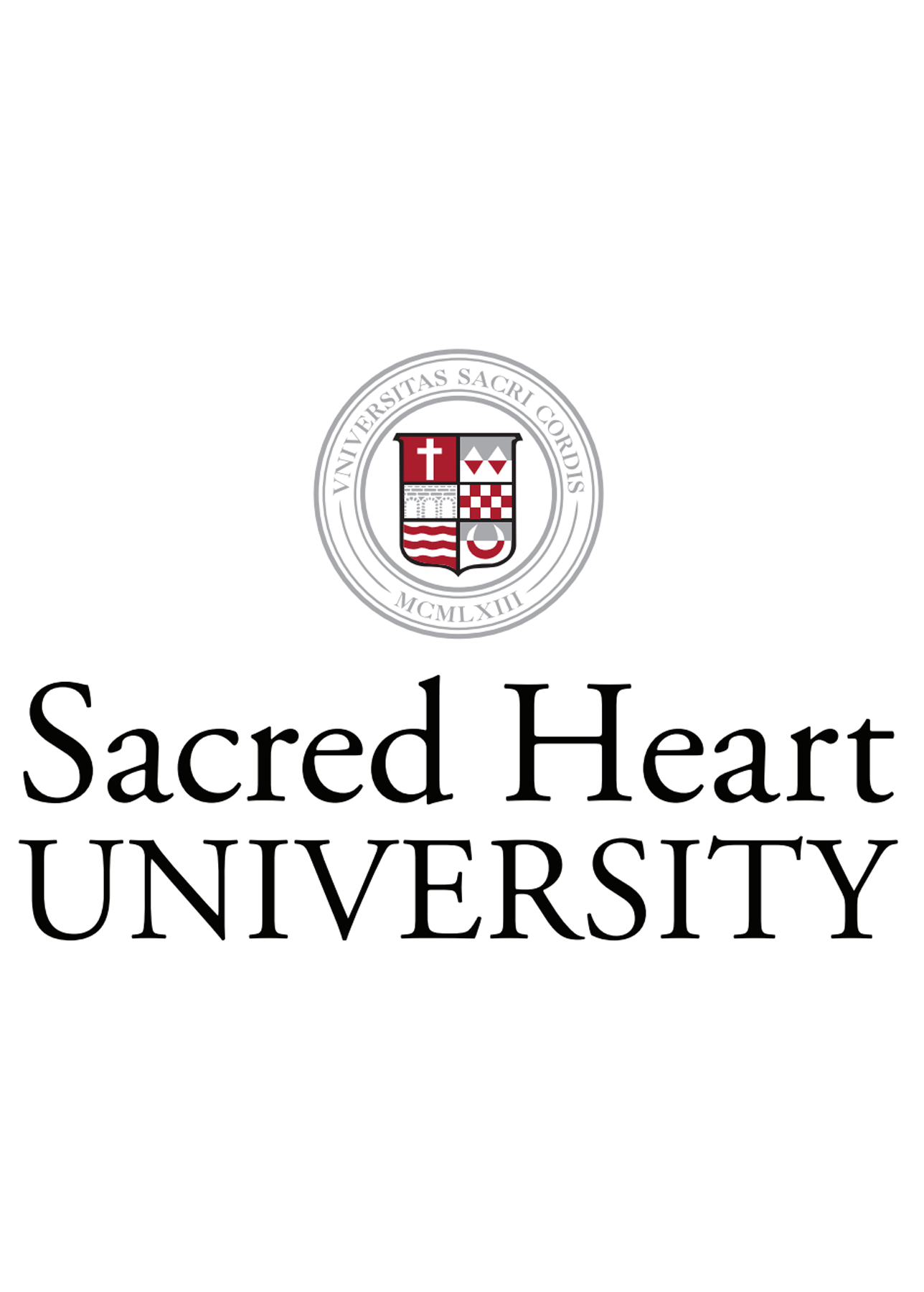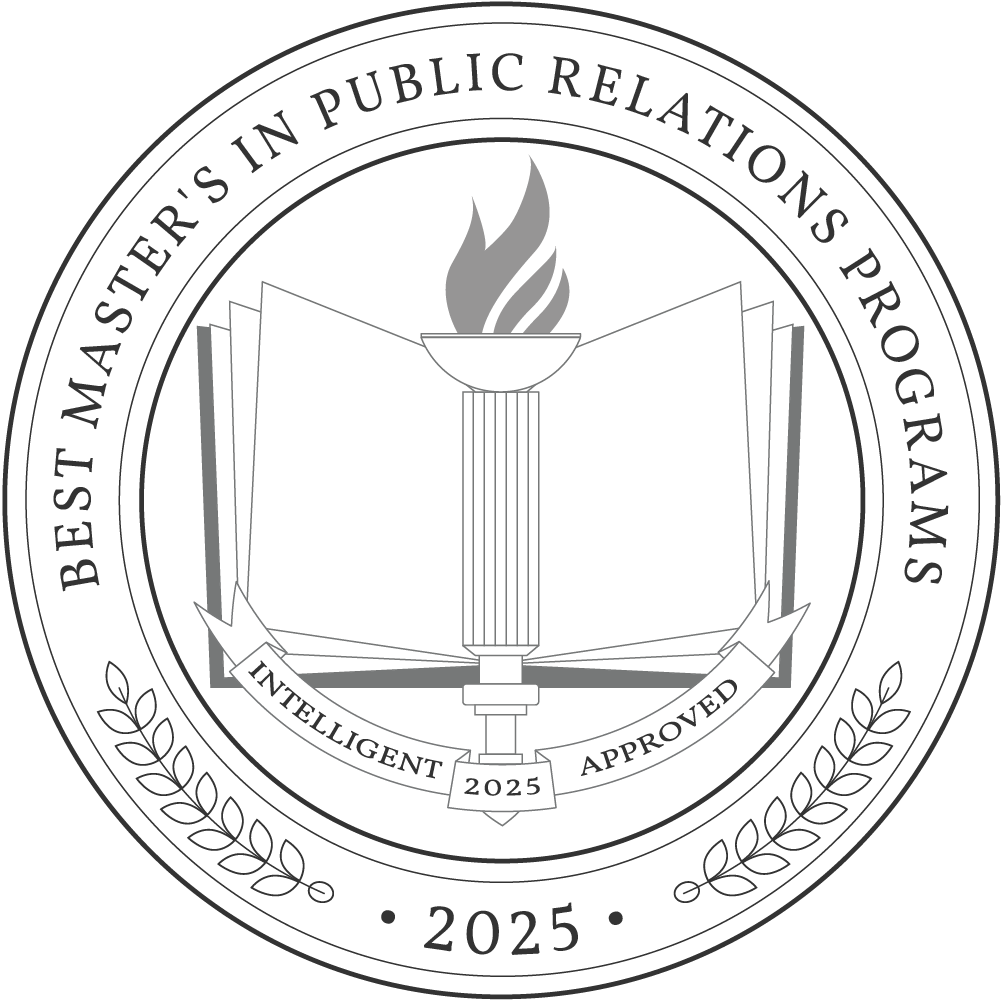Public relations may be a good fit if you’d like a career that combines journalistic creativity with business acumen. Careers in public relations include fundraising manager, public relations manager, advertising and promotions manager, and marketing manager — all of these occupations have higher average salaries than the overall median wage ($46,310). In 2022, public relations specialists earned an average salary of $67,440, while public relations and fundraising managers made an average of $107,390 to $129,430.Business students, journalists, and communications majors often pursue postgraduate degrees in public relations to master marketing skills and advance in their careers. The average cost of a master’s degree in public relations program was $20,513 in 2023, with room and board adding additional costs.
Why Trust Us
The Intelligent.com Higher Education Team is dedicated to providing students with independent, equitable school and program rankings and well-researched resources. Our expert-driven articles cover topics related to online colleges and programs, paying for school, and career outlooks. We use data from the U.S. Department of Education’s College Scorecard, the National Center for Education Statistics, and other reputable educational and professional organizations. Our academic advisory team reviews content and verifies accuracy throughout the year for the most current information. Partnerships do not influence rankings or editorial decisions.
- Analyzed over 2,000 national, accredited, and nonprofit colleges and universities
- 800+ rankings pages are reviewed and updated yearly
- Content is informed by reputable sources, surveys, and interviews with academic advisors and other experts
- Over 100 data points are reviewed for accuracy and quality throughout the year, including sources
How we rank schools
Our list features the best Public Relations degree programs at top colleges nationwide. Each school featured is a nonprofit, accredited institution — either public or private — with a high standard of academic quality for post-secondary institutions.
We evaluated each school’s program on tuition costs, admission, retention and graduation rates, faculty, reputation, and the student resources provided for online students. We collected data from trusted sources like the National Center for Education Statistics, individual school and program websites, school admissions counselors, and other data sources. Then, we calculated the Intelligent Score on a scale of 0 to 100 based on the following criterion:
Academic Quality:
- Admission rate versus enrollment rate
- Retention rate of students who return after year one
- Accreditation status (regional and programmatic)
- Nonprofit status, both private and public institutions
Graduation Rate
- Overall graduation rate
- Total number of currently enrolled students, including diversity metrics
- Student-to-faculty ratio
Cost and ROI
- In-state and out-of-state per-credit tuition rates and fees
- Required credits to graduate
- Earning potential after graduation
- Availability of federal student loans, scholarships, and other financial aid options
Student Resources
- Available student services for online-only and hybrid programs
- On-campus amenities like tutoring centers and the number of libraries
Read more about our ranking methodology.
Best 21 Accredited Master’s in Public Relations Degree Programs
FiltersInstitution Type
Status
- Intelligent Score
- Alphabetically By University Name
- Acceptance Rate
- Enrollment
- In-state Graduate Tuition
- Out-of-state Graduate Tuition
- In-state Undergraduate Tuition
- Out-of-state Undergraduate Tuition

Georgetown University
Intelligent Score: 99.57In-state: $57,384
Out-of-state: $57,384
In-state: $53,136
Out-of-state: $53,136
SAT: 1380-1550
ACT: 31-35
$1,573 - $1,620
On-Campus, Online
Middle States Commission on Higher Education
30

George Washington University
Intelligent Score: 96.03In-state: $55,961
Out-of-state: $55,961
In-state: $31,770
Out-of-state: $31,770
SAT: 1270-1450
ACT: 30-33
$1,880
On-Campus, Online, Hybrid
Middle States Commission on Higher Education
30

USC Annenberg School for Communication and Journalism
Intelligent Score: 93.49In-state: $12,288
Out-of-state: $33,528
In-state: $13,737
Out-of-state: $13,737
SAT: 1140-1340
ACT: 25-31
$2,244
On-Campus
Western Association of Schools and Colleges Senior College and University Commission
36

Quinnipiac University
Intelligent Score: 92.86In-state: $48,200
Out-of-state: $48,200
In-state: $19,350
Out-of-state: $19,350
SAT: N/A
ACT: N/A
$1,105
On-Campus, Online
New England Commission of Higher Education
30

UM School of Communication
Intelligent Score: 92.47In-state: $16,520
Out-of-state: $53,669
In-state: $24,344
Out-of-state: $24,344
SAT: 1340-1520
ACT: 31-34
$2,421
On-Campus
Southern Association of Colleges and Schools Commission on Colleges
30

Syracuse University
Intelligent Score: 92.32In-state: $53,432
Out-of-state: $53,432
In-state: $40,392
Out-of-state: $40,392
SAT: N/A
ACT: N/A
$1,945
On-Campus
Middle States Commission on Higher Education
36-37

University of Houston
Intelligent Score: 91.99In-state: $8,449
Out-of-state: $20,665
In-state: $8,539
Out-of-state: $8,539
SAT: 1120-1310
ACT: 22-28
Resident: $470
Non-Resident: $990
On-Campus
Southern Association of Colleges and Schools Commission on Colleges
30

The City College of New York
Intelligent Score: 91.88In-state: $6,930
Out-of-state: $14,880
In-state: $11,090
Out-of-state: $11,090
SAT: 1170-1340
ACT: 25-31
Resident: $865
Non-Resident: $1,075
On-Campus
Southern Association of Colleges and Schools Commission on Colleges
36

Suffolk University
Intelligent Score: 91.25In-state: $41,242
Out-of-state: $41,242
In-state: $39,914
Out-of-state: $39,914
SAT: 1010-1203
ACT: 21-26
$1,497
On-Campus
New England Commission of Higher Education
36

Indiana University Indianapolis
Intelligent Score: 91.13In-state: $9,815
Out-of-state: $36,194
In-state: $9,786
Out-of-state: $9,786
SAT: 1120-1350
ACT: 24-31
In-state: $390 Out-of-state: $1,078
On-Campus, Online, Hybrid
Higher Learning Commission
30

Wayne State University
Intelligent Score: 90.55In-state: $13,024
Out-of-state: $29,894
In-state: $16,285
Out-of-state: $16,285
SAT: 1000-1200
ACT: 20-27
In-state: $800 Out-of-state: $1,689
On-Campus, Online
Higher Learning Commission
30

Boston University
Intelligent Score: 89.15In-state: $56,854
Out-of-state: $56,854
In-state: $56,854
Out-of-state: $56,854
SAT: 1310-1500
ACT: 30-34
$2,777
On-Campus
New England Commission of Higher Education
48

Monmouth University
Intelligent Score: 89.01In-state: $39,968
Out-of-state: $39,968
In-state: $27,874
Out-of-state: $27,874
SAT: 1040-1210
ACT: 21-26
$1,136
On-Campus
Middle States Commission on Higher Education
30

Sacred Heart University
Intelligent Score: 87.67In-state: $44,080
Out-of-state: $44,080
In-state: $34,806
Out-of-state: $34,806
SAT: N/A
ACT: N/A
$985
Hybrid
New England Commission of Higher Education
36

DePaul University
Intelligent Score: 87.61In-state: $40,551
Out-of-state: $40,551
In-state: $19,370
Out-of-state: $19,370
SAT: N/A
ACT: N/A
$806
On-Campus, Hybrid
Higher Learning Commission
48

New York University
Intelligent Score: 87.19In-state: $52,204
Out-of-state: $52,204
In-state: $34,704
Out-of-state: $34,704
SAT: 1370-1540
ACT: 31-34
$2,575
On-Campus
Middle States Commission on Higher Education
42

Emerson College
Intelligent Score: 86.91In-state: $49,536
Out-of-state: $49,536
In-state: $31,104
Out-of-state: $31,104
SAT: 1190-1380
ACT: 27-31
$1,402
On-Campus
New England Commission of Higher Education
36

Seton Hall University
Intelligent Score: 86.70In-state: $42,920
Out-of-state: $42,920
In-state: $24,372
Out-of-state: $24,372
SAT: 1150-1310
ACT: 25-30
$1,465
On-Campus
Middle States Commission on Higher Education
36
How to Choose a Public Relations Program
Choose your area of study
If you’d like to apply a master’s degree in public relations to a business career, most Master of Business Administration (MBA) programs offer a specialization in public relations. You can also earn a postgraduate degree that is more specific to public relations and advertising, such as:
- Master of Science in public relations
- Master of Arts in public relations
- Master of Arts in advertising and public relations
- Master of Arts in strategic public relations
Applying a public relations focus to a broader communications postgraduate degree can give you a professional edge in the future. These master’s degrees include:
- Master of Science in communications
- Master of Science in global strategic communications
- Master of Arts in integrated marketing communications
- Master of Arts in mass communications
Choosing between a Master of Arts (MA) and a Master of Science (MS) degree in public relations depends on the style of coursework you’d like to complete. Master’s degrees in public relations from schools of arts focus on journalistic and humanities perspectives of the field. A public relations master’s degree from a school of science includes coursework focusing more on data analysis and math-based projects. Both degrees in public relations are valuable, so choose the degree that best suits your learning style.
Research schools and programs
Finding an accredited public relations degree program ensures that you’re receiving a rigorous education and can transfer and apply the credits you earn. The Accrediting Council on Education in Journalism and Mass Communication (ACEJMC) and Higher Learning Commission (HLC) regularly assess institutions with public relations programs for high-quality instruction and adherence to professional standards. For programmatic accreditation, refer to the Public Relations Student Society of America (PRSSA) for a list of schools that they accredit in their organization.
Prepare for tests and applications
Professional writing skills are critical in a public relations program, so spend time outlining, drafting, and editing your letter. It should address your past education, current skills, and future goals. Apply any copywriting and copyediting skills acquired in past journalism or marketing courses.
Before applying to a public relations master’s degree program, take any required entrance tests (with enough time to retake them, if necessary). The Graduate Record Examination (GRE) and Graduate Management Admission Test (GMAT) are standard tests required by postgraduate programs. Business schools typically prefer applicants to take the GMAT, while journalism schools often require the GRE. Check with your desired program for their specific testing requirements.
In addition to your letter of intent and graduate test scores, you’ll need letters of recommendation from prior employers and professors, sealed transcripts from your bachelor’s program, and any other requirements listed on your program’s website.
Select your program
The public relations program you choose depends on whether you’re looking for a journalistic or business focus. Students who want to apply journalistic skills to a career in public relations should look for institutions with reputable journalism schools. Students who aim to use their master’s degrees in public relations in the corporate or business world should look for institutions with high-quality business schools.
Your program should also fit your needs — factor in the cost, transportation needs, room and board, and scheduling into your decision. If you’re already working, taking care of family members, or unable to attend school full-time, look into schools with part-time schedule options.
Determine how you’ll pay for your degree
Complete the Free Application for Federal Student Aid (FAFSA) form to see what financial aid you can apply toward your postgraduate education. Next, narrow your list of public relations programs down by affordability. Which schools are out of your budget, and which could you realistically afford to attend?
Talk to the financial aid office at your desired school for more financial tips and insights. They can help you navigate grants, scholarships, and other ways to pay for your public relations master’s degree.
What Can You Expect From a Public Relations Program?
A public relations master’s degree includes graduate-level courses, lectures, discussions, and internship opportunities. Students complete a thesis or capstone project, which may consist of a strategic campaign plan or portfolio of work completed throughout the program.
Potential courses you’ll take in a public relations program
- Advertising. Students learn to apply advertising principles and best practices to various forms of marketing communication and create advertising campaigns using consumer motivation, copywriting, and persuasive techniques.
- Public relations writing. In this class, students develop essential writing skills, including outlining, drafting, and editing, for PR-specific material such as op-eds, press releases, and digital media copy.
- Brand management. This course teaches the basics of branding and brand management for business strategy. Students explore how mission statements, brand identity, target audience, and company voice affect brand management.
- Content creation. In content creation courses, students use campaign strategies to design multimedia content for different organizations. They then analyze existing content as it relates to advertising in case studies and group projects.
- Media and culture. By applying an interdisciplinary understanding of media and culture to an advertising or public relations campaign, students learn to analyze its effectiveness and impact.
Public Relations Degree Frequently Asked Questions
How do I apply to a public relations degree program?
A program’s website is the best place to find application information for your public relations degree. It will list application deadlines, requirements, recommendations, and interview dates (if needed). The website should also list a minimum GPA, test scores, and other necessary elements of your application package. Contact the admissions office at your desired school for more information about application requirements.
How much does a public relations degree cost?
In 2023, the average tuition and fees for a master’s degree in public relations was $20,513. Room and board, transportation costs, books and educational materials, and additional fees will increase that number, so factor all elements into your budget before making admission decisions.
How long does it take to earn a public relations degree?
Most public relations master’s degrees require 30 graduation credits, which take students four semesters (or two years) to complete. Some master’s programs offer accelerated options, in which students can complete all 30 credits in one year. Part-time master’s degree courses take longer to complete, as students take fewer than 15 credits per course year.

